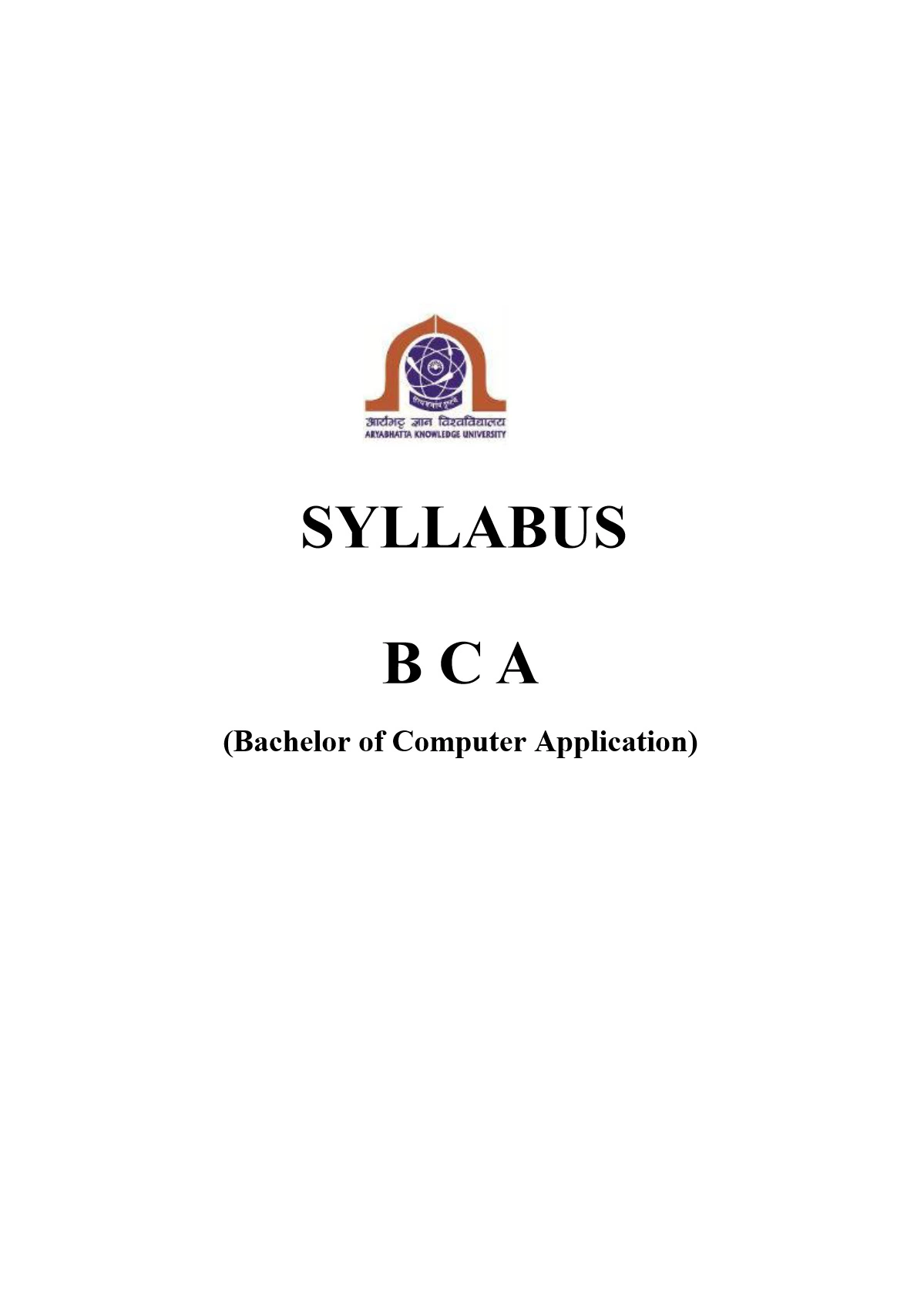
Bachelor of Computer Application (BCA) Syllabus 2026
The Bachelor of Computer Applications (BCA) program typically spans three years and is divided into six semesters. The exact syllabus can vary slightly between universities, but it generally includes a mix of core computer science subjects, mathematics, business management, and soft skills development.
BCA Syllabus 2024
Semester 1
- Fundamentals of IT: Introduction to Information Technology concepts, hardware, software, and applications.
- Programming in C: Basic programming constructs, data types, operators, control structures, functions, arrays, pointers, and file handling in C.
- Mathematics I: Basic algebra, calculus, and discrete mathematics.
- Digital Electronics: Fundamentals of digital circuits, logic gates, Boolean algebra, combinational and sequential circuits.
- Communication Skills: Effective communication techniques, verbal and non-verbal communication, writing skills.
Semester 2
- Data Structures using C: Arrays, linked lists, stacks, queues, trees, graphs, and their algorithms.
- Database Management Systems: Introduction to databases, SQL, normalization, and database design.
- Mathematics II: Advanced calculus, linear algebra, and probability.
- Object-Oriented Programming in C++: OOP concepts, classes, objects, inheritance, polymorphism, and file handling.
- Environmental Science: Environmental studies, sustainability, and ecological balance.
Semester 3
- Operating Systems: Concepts of operating systems, process management, memory management, file systems, and security.
- Computer Networks: Network architecture, protocols, LAN, WAN, and network security.
- Software Engineering: Software development life cycle, methodologies, project management, and quality assurance.
- Java Programming: Java fundamentals, object-oriented programming, exception handling, multithreading, and GUI development.
- Web Technology: HTML, CSS, JavaScript, and basic web development concepts.
Semester 4
- Computer Architecture: CPU organization, memory hierarchy, input/output devices, and assembly language.
- Data Communication and Networking: Data transmission, network models, switching, routing, and network security.
- Python Programming: Basics of Python, data structures, OOP, modules, and exception handling.
- Management Information Systems: MIS concepts, system development, and information systems for decision making.
- Elective I: Choose from subjects like Multimedia Systems, E-Commerce, or any other elective offered by the university.
Semester 5
- Web Development using PHP: Server-side scripting, PHP basics, database connectivity, and web applications.
- Software Testing: Testing methodologies, types of testing, test planning, and automation tools.
- Computer Graphics: Graphics systems, algorithms, transformations, and multimedia.
- Network Security: Cryptography, security protocols, firewalls, and intrusion detection systems.
- Elective II: Choose from subjects like Mobile Computing, Cloud Computing, or any other elective offered by the university.
Semester 6
- Artificial Intelligence: AI concepts, machine learning, natural language processing, and expert systems.
- Data Mining and Warehousing: Data mining techniques, data warehousing concepts, and business intelligence.
- Project Work: A major project involving the design and implementation of a software application, often with a real-world focus.
- Elective III: Choose from subjects like Internet of Things (IoT), Big Data Analytics, or any other elective offered by the university.